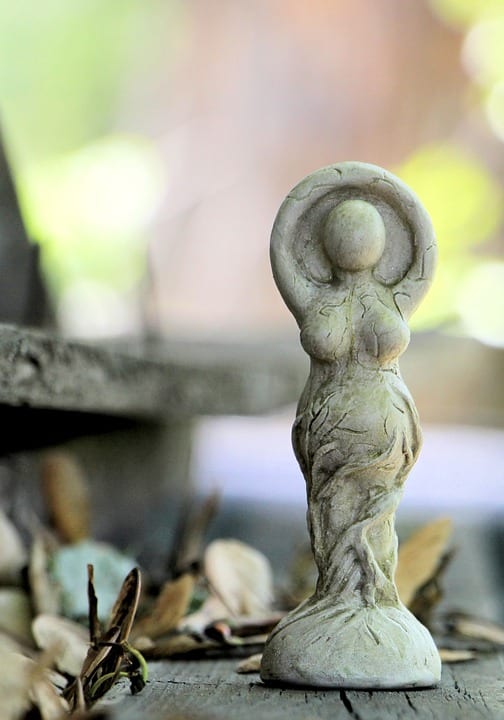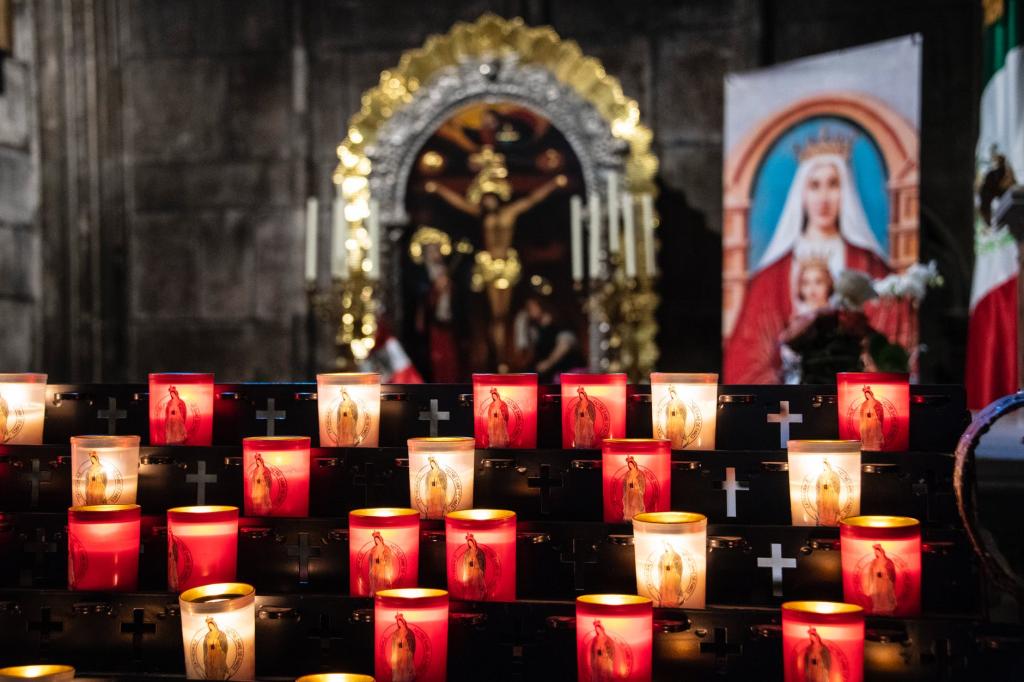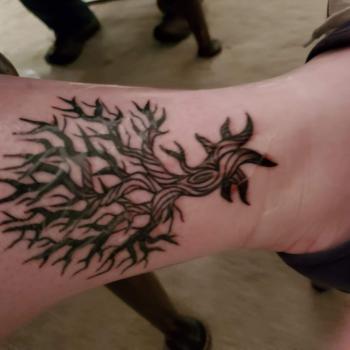
A few months ago (perhaps in July) I stumbled upon a reflection on God as mother.
It was powerful, moving, compelling. It spoke of the divine feminine and it was truly gorgeous. It made me want to believe in God again in a way not much has this past year. I shared the reflection into a facebook group a good friend of mine created to share artwork that moves us. This piece had moved me, and I knew the members of this group would appreciate it as I had.
My God is a curvy black woman with dreadlocks and dark, cocoa-brown skin.
She laughs from her belly and is unashamed to cry.
She can rock a whole world to sleep, singing in her contralto voice.
Her sighs breathe life into humanity.
Her heartbreaks cause eruptions of justice and love…
My God is an incarnate feminine power, who smells like vanilla and is full of sass and truth, delivered with kindness.
She’ll do anything for her creation; her love is fierce.
She weeps when we do
and insists on justice.
She is God.
She is Love.
Immediately, a man responded.
A man I know in real life, actually, as he was one of my English professors in college. And his response showed that he took issue with this female personification of the divine: “God is being itself. He is not a creature as we know it.”
This brief exchange (if you can even call it that) has bugged me for three months now. At the time I wanted to respond, but like so many other woman before me in the face of mansplaining, I knew it would only escalate and get me precisely nowhere—except more frustrated.
So I grit my teeth, sighed (or harrumphed), and tried to move on.
But still it eats at me.
I know that the church technically teaches that God has no gender. I’m fine with that. There is a beauty in that.
But I also know that had I shared a reflection on the masculine, muscular, or fatherly aspects of God, that man would certainly not have commented insisting “but God has no gender!”
The subtext here is that it’s fine for us to imagine, portray, and characterize a gendered God—until we choose to portray her as female.
Until we use female pronouns or meditate on the feminine side of the divine.
And it isn’t like this is new or heretical (despite what the trads who raised me brainwashed me to believe). It simply isn’t. We read in Honors seminars the writings of the Fathers of the Church, and some of them certainly touched on this topic. I’ve know male theology majors at Franciscan University who wrote their theses on the motherly aspects of the Holy Spirit. I helped them edit those theses in the Writing Center where I worked. So no, it is not some heresy introduced by Vatican II or feminism or the sexual revolution (just as, news flash Pope Emeritus, neither was sexual abuse, assault, or rape).
Yes, Christ incarnate was male. I don’t argue with that point.
But was he?
I went to a talk, once again during my time at Franciscan, where a Byzantine Catholic priest gave an evening lecture on the Theotokos, the “God Bearer,” Mary of Nazareth—Christ’s mother.
This priest explained that one of the conclusions of believing in Mary’s perpetual virginity, in her being Christ’s sole human parent, is that Christ inherited his genes only from Mary.
This priest’s conclusion was as to the consecrated blood of Eucharistic wine, that as we consume Christ’s consecrated blood so do we consume Mary’s blood, that Mary’s blood was sacrificed on Calvary too, since Christ’s blood was Mary’s blood.
But my query is, does this make Christ genetically female?
Is Christ, in fact, intersex? Male presenting with two x chromosomes in his DNA?
And does this disturb you?
If so, why?
Flannery O’Connor wrote a story, “A Temple of the Holy Ghost,” which is one of my personal favorites of hers. In it, a self-righteous bratty young girl sees Christ in a “hermaphrodite at a freak show.” In a circus.
Ironically, I first read and discussed this story in class with the male professor I mentioned above. And the thing is, I never found that story at all shocking until I ran into an SSPX-inclined young Catholic on twitter who assumed O’Connor was a heretic for writing it.
Here’s the thing: if the thought of God as female, intersex, or androgenous makes you uncomfortable… maybe you should be asking yourself why. No, not maybe. You absolutely should.
What internal prejudices and discrimination will you find? What makes you revile the idea of a female or intersex god so deeply? Could is be your own feelings of superiority? Does the thought of a female god challenge your assumptions that you were made for God and woman was made for you, as Milton smugly wrote?
Because the reality is, God is all of his/her/their children; that is where you find the divine.
When you feed the hungry, you feed Christ. When you sneer at a woman’s clothes in Mass, at her period pain at work, you sneer at Christ. When you demean an intersex person, a trans person, a gay or queer person… you demean Christ.
In Christ there is no male or female, after all.
Are you uncomfortable?
Image Credit: https://www.maxpixel.net/Religion-Sculpture-God-Goddess-Statue-Ancient-1405539












